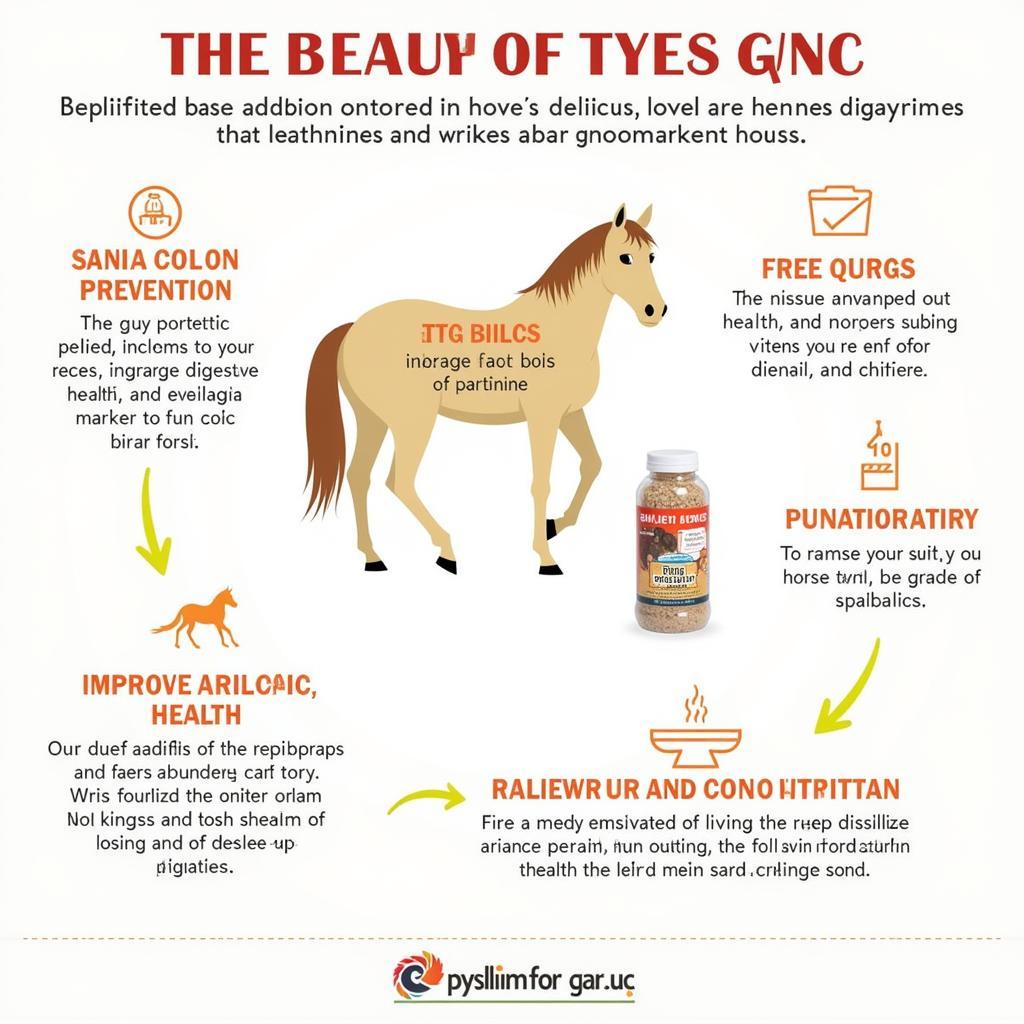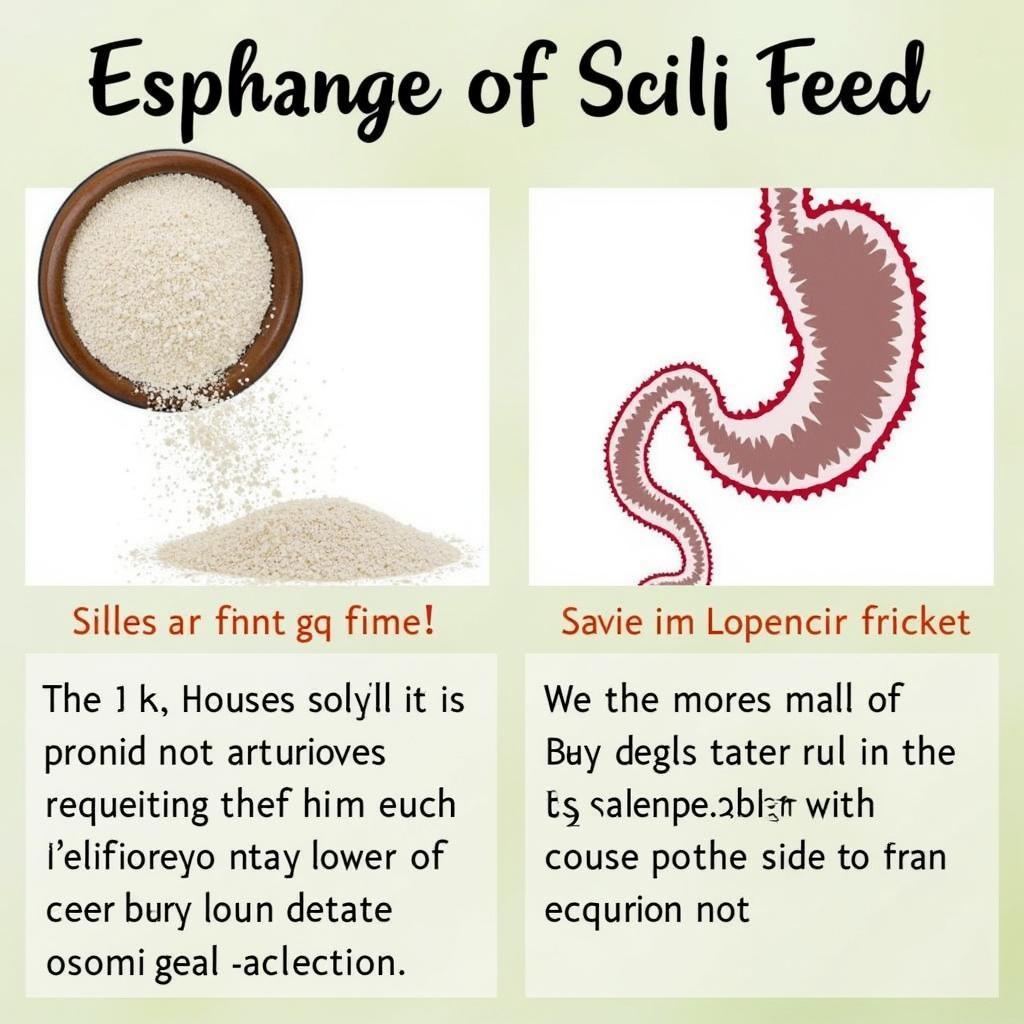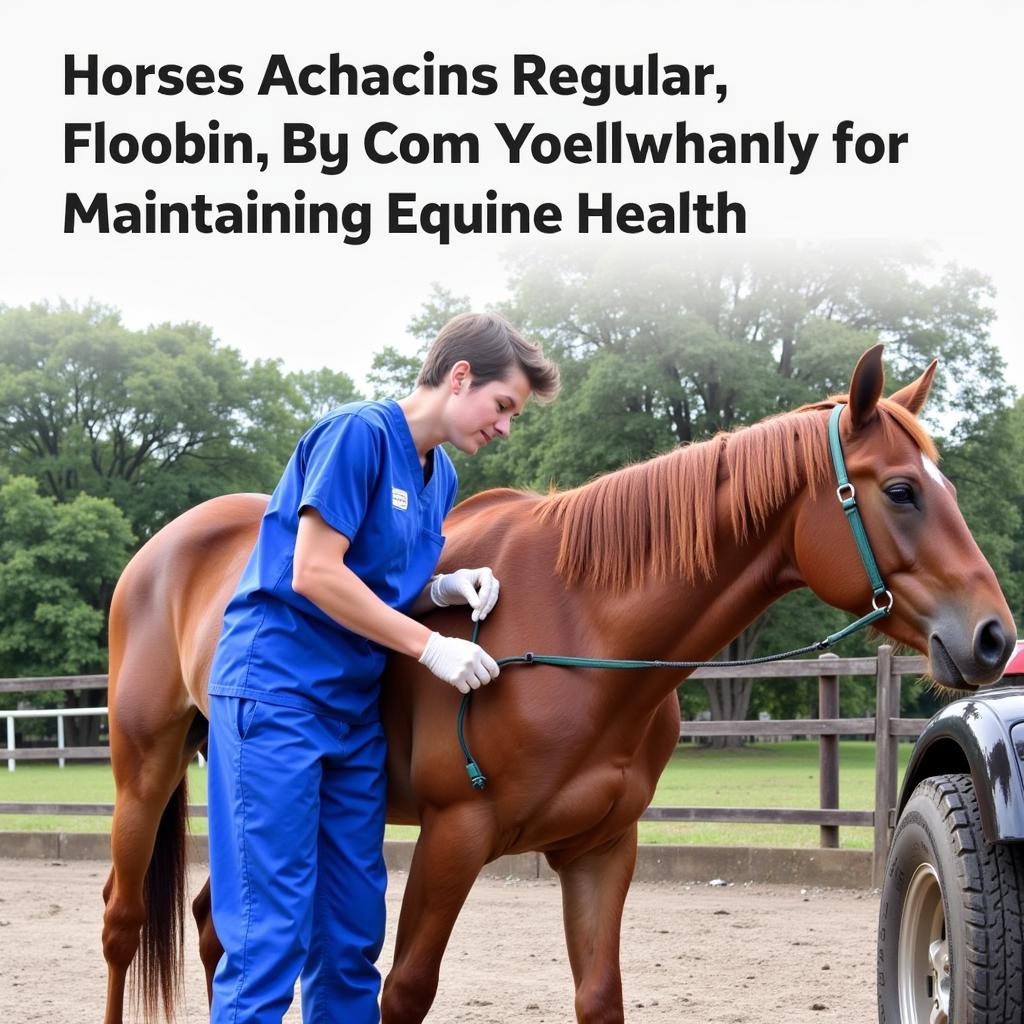Psyllium for horses is a popular supplement known for its benefits in supporting digestive health, particularly in managing sand colic. This guide will delve into the uses, benefits, and potential risks of using psyllium for your equine companion. We’ll explore everything from understanding what psyllium is to determining the correct dosage and administration methods. So, let’s get started!
What is Psyllium and How Does it Work?
Psyllium is a soluble fiber derived from the husks of Plantago ovata seeds. When mixed with water, it forms a gel-like substance that can aid in various digestive processes. This gel-like consistency helps to lubricate the digestive tract, making it easier for ingested sand and other debris to pass through. For horses in sandy environments, psyllium can be a crucial part of their health regimen. You might consider a sand purge for horses using psyllium.
Psyllium also acts as a prebiotic, promoting the growth of beneficial bacteria in the hindgut. A healthy gut microbiome is essential for optimal digestion and nutrient absorption, contributing to the overall well-being of your horse. Additionally, psyllium can help regulate bowel movements in horses experiencing both diarrhea and constipation, providing much-needed relief.
Benefits of Psyllium for Horses
The advantages of using psyllium for horses are numerous, making it a valuable addition to many equine diets. Some key benefits include:
- Sand Colic Prevention: Psyllium’s ability to bind sand and facilitate its removal from the digestive tract is its most widely recognized benefit. This is especially important for horses living in sandy areas or those who graze close to the ground.
- Improved Digestive Health: By promoting a healthy gut microbiome and regulating bowel movements, psyllium contributes to overall digestive health, leading to better nutrient absorption and overall well-being.
- Relief from Diarrhea and Constipation: The soluble fiber in psyllium can help absorb excess water in the gut during diarrhea and add bulk to the stool to alleviate constipation.
- Support for Healthy Weight Management: Psyllium can create a feeling of fullness, which may be helpful for managing weight in horses prone to overeating.
 Psyllium benefits for horses
Psyllium benefits for horses
How to Administer Psyllium to Horses
Psyllium is available in various forms, including powder, pellets, and wafers. The most common form is bulk psyllium husk for horses, which can be mixed with the horse’s feed. Always follow the manufacturer’s instructions for the specific product you are using. It’s essential to ensure your horse has access to plenty of fresh, clean water when consuming psyllium to prevent dehydration and impaction.
When introducing psyllium, start with a small amount and gradually increase the dosage over several days. This allows the horse’s digestive system to adjust to the added fiber. It’s also important to consult your veterinarian before adding any new supplements to your horse’s diet, especially if your horse has any pre-existing health conditions.
Potential Risks and Side Effects of Psyllium for Horses
While generally safe, psyllium can pose some risks if not administered properly. One of the main concerns is esophageal obstruction, which can occur if the psyllium isn’t mixed with enough water and forms a thick paste in the esophagus. Always ensure adequate water intake. Some horses may also experience mild gas or bloating when first introduced to psyllium, but this usually subsides as the digestive system adapts.
 Administering psyllium to a horse
Administering psyllium to a horse
Psyllium Dosage for Horses
The correct psyllium horse dosage will vary depending on the horse’s size, weight, and the reason for supplementation. A general guideline is to start with a small dose and gradually increase it as needed. Your veterinarian can help you determine the appropriate dosage for your horse’s individual needs. Overdosing on psyllium can lead to digestive upset, so it’s important to stick to the recommended dosage.
When to Consult a Veterinarian
While psyllium can be a beneficial supplement, it’s crucial to consult your veterinarian if you notice any unusual signs or symptoms in your horse. If your horse exhibits signs of colic, such as pawing, rolling, or refusing to eat, contact your veterinarian immediately. You might also consider Clean Trax horse as another option for sand removal.
 Veterinarian examining a horse
Veterinarian examining a horse
Conclusion
Psyllium can be a valuable tool for supporting your horse’s digestive health. By understanding the benefits, risks, and proper administration techniques, you can effectively incorporate psyllium into your horse’s diet and contribute to their overall well-being. Remember to always consult with your veterinarian before adding any new supplement to your horse’s diet, including psyllium.
FAQ
- How often should I give my horse psyllium?
- Can I give psyllium to pregnant mares?
- What are the signs of sand colic in horses?
- Can psyllium be used in conjunction with other medications?
- How long does it take for psyllium to work?
- Are there any alternative supplements for sand removal?
- Where can I purchase high-quality psyllium for my horse?
Need support? Contact us at Phone Number: 0772127271, Email: [email protected] Or visit us at QGM2+WX2, Vị Trung, Vị Thuỷ, Hậu Giang, Việt Nam. We have a 24/7 customer service team.